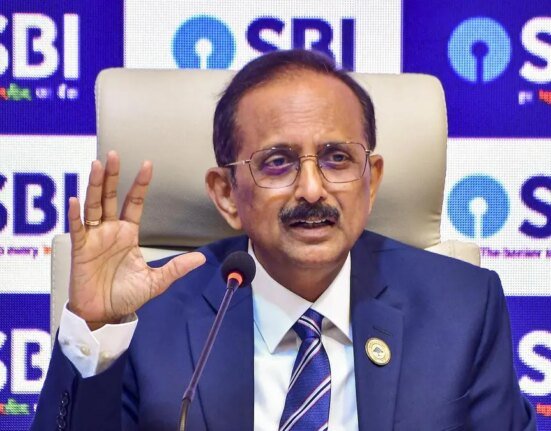For folks seeking a low-risk way to increase their savings, both money market accounts and money market funds hold a lot of appeal. But despite their similar names, these two savings vehicles are very different. Here’s how to decide which account works best for your goals.
LendingClub offers a variety of products, including savings accounts and CDs.
Offers in this section are from affiliate partners and selected based on a combination of engagement, product relevance, compensation, and consistent availability.

Annual Percentage Yield (APY)
4.50% (with monthly deposits of at least $250), or 3.50%
What is a money market account?
A money market account (MMA) is a specific type of savings account available through your bank or credit union. It is insured up to $250,000 by the Federal Deposit Insurance Corporation (banks) or the National Credit Union Administration (credit unions).
At its best, a money market account blends the reliability (and high APYs) of a savings account with the accessibility of a checking account. You can write checks, easily withdraw cash and generally have quick access to your money. This makes MMAs a good place to park cash meant for:
- an emergency fund
- a future vacation
- holiday gifts
- recurring expenses like rent, car payments, etc.
Some of our favorite MMAs include the Ally Bank Money Market Account and the Quontic Bank Money Market Account because of their ATM/debit card features, high APYs and lack of monthly maintenance fees.
Ally Bank® Money Market Account
Ally Bank® is a Member FDIC.
-
Annual Percentage Yield (APY)
-
Minimum balance
-
Monthly fee
-
Offer checks?
-
Offer debit/ATM card?
Pros
- Above-average APY
- No minimum balance
- No monthly fee
- Access to checks and debit/ATM card
- Out-of-network ATM reimbursement up to $10 per month
Cons
- No physical branch locations
Quontic Bank Money Market Account
Quontic Bank is a Member FDIC.
-
Annual Percentage Yield (APY)
-
Minimum balance
-
Monthly fee
-
Offer checks?
-
Offer debit/ATM card?
Pros
- Above-average APY
- No monthly fee
- Access to checks and debit/ATM card
- Physical branch locations
What is a money market fund?
Unlike a money market account, which is a deposit account, a money market fund is a type of mutual fund invested in low-risk cash, cash-equivalent or debt-based securities. And while these funds count as some of the safest investments on the market, they’re exposed to the whims of the market, and as a result, there’s a risk you could lose you money.
So why take a chance, no matter how small, on taking a loss? Because the returns on a money market fund are likely higher than the APY you might earn with any deposit account, including MMAs. This depends on the performance of the market (as well as the APY rates that banks set for their MMAs), but the possibility of earning a higher return makes money market funds a tempting choice.
You can open a fund through a brokerage like Fidelity or Charles Schwab by providing some personal information and then depositing your funds. Getting money from your money market fund is a straightforward process, but it will take longer than withdrawing money from an MMA. Transactions from brokerage accounts typically take a business day or two, and unless you’ve set up a checking account through your brokerage company, you’ll need to transfer funds to your bank account before withdrawing.
Charles Schwab
-
Minimum deposit and balance
Minimum deposit and balance requirements may vary depending on the investment vehicle selected. No account minimum for active investing through Schwab One® Brokerage Account. Automated investing through Schwab Intelligent Portfolios® requires a $5,000 minimum deposit
-
Fees
Fees may vary depending on the investment vehicle selected. Schwab One® Brokerage Account has no account fees, $0 commission fees for stock and ETF trades, $0 transaction fees for over 4,000 mutual funds and a $0.65 fee per options contract
-
Bonus
-
Investment vehicles
Robo-advisor: Schwab Intelligent Portfolios® and Schwab Intelligent Portfolios Premium™ IRA: Charles Schwab Traditional, Roth, Rollover, Inherited and Custodial IRAs; plus, a Personal Choice Retirement Account® (PCRA) Brokerage and trading: Schwab One® Brokerage Account, Brokerage Account + Specialized Platforms and Support for Trading, Schwab Global Account™, Schwab Organization Account and Schwab Trading Powered by Ameritrade™
-
Investment options
Stocks, bonds, mutual funds, CDs and ETFs
-
Educational resources
Extensive retirement planning tools
Pros
- $0 minimum deposit for active investing
- No commission fees for stock and ETF trades and no transaction fees for over 4,000 mutual funds
- Offers extensive retirement planning tools
- Users can get on-demand advice from a professional advisor/Schwab expert
- Robo-advisor Schwab Intelligent Portfolios® available as a no-fee automated service option (with Premium version available for a fee)
- Award-winning thinkorswim® trading platforms and all their cutting-edge tools are now available at Schwab.
- 24/7 customer support access by phone or chat
- Charles Schwab offers over 300 brick-and-mortar branches across the U.S. for in-person support
Cons
- Specific transactions may require commission fee
- Robo-advisor Schwab Intelligent Portfolios Premium charges a one-time planning fee of $300, then a $30 per month advisory fee. For that price, you get unlimited 1:1 guidance from a CFP, interactive planning tools, plus a personalized roadmap for reaching your goals
Fidelity Investments
-
Minimum deposit and balance
Minimum deposit and balance requirements may vary depending on the investment vehicle selected. No minimum to open a Fidelity Go® account, but minimum $10 balance for robo-advisor to start investing
-
Fees
Fees may vary depending on the investment vehicle selected. Zero commission fees for stock, ETF, options trades and some mutual funds; zero transaction fees for over 3,400 mutual funds; $0.65 per options contract. Fidelity Go® has no advisory fees for balances under $25,000 (0.35% per year for balances of $25,000 and over and this includes access to unlimited 1-on-1 coaching calls from a Fidelity advisor)
-
Bonus
-
Investment vehicles
Robo-advisor: Fidelity Go® IRA: Traditional, Roth and Rollover IRAs Brokerage and trading: Fidelity Investments Trading Other: Fidelity Investments 529 College Savings; Fidelity HSA®
-
Investment options
Stocks, bonds, ETFs, mutual funds, CDs, options and fractional shares
-
Educational resources
Extensive tools and industry-leading, in-depth research from 20-plus independent providers
Pros
- No commission fees for stock, ETF, options trades
- No transaction fees for over 3,400 mutual funds
- Limited-time special offers
- Abundant educational tools and resources
- 24/7 customer service
- Over 100 brick-and-mortar branches across the U.S. for face-to-face support
Cons
- Fidelity Go® has a 0.35% advisory fee per year for balances of $25,000 and over
- Some of Fidelity’s mutual funds require reaching specific thresholds
- Reports of platform outages during heavy trading days
Because it can take a few days to withdraw your money from a money market fund, they aren’t the best places to put cash you need immediately, like your emergency savings. And while the returns on a money market fund may outpace most deposit accounts, they usually pale in comparison to other investments, which makes them less than ideal for long-term goals such as retirement.
It’s best to talk to a financial advisor about how the low-risk investments of a money market fund fit into your overall investment strategy, rather than seeing it as a replacement for a savings or money market account.
Which one is best for you?
If you’re looking for a safe place to stash your savings, an MMA might be your best bet. A money market account typically offers a higher APY than most traditional savings accounts, plus you can easily access your money and you get the financial security of FDIC protection on balances up to $250,000.
The decision to go with a money market fund will have more to do with your attitude toward investing. If you can tolerate some risk and don’t anticipate needing to withdraw money in a hurry, then money market funds can grow your cash quicker than most bank accounts. This can make the funds useful for reaching some of the same short-term goals (future, predictable expenses) that MMAs help with — provided you can stomach the potential ups and downs of the market.
Subscribe to the CNBC Select Newsletter!
Money matters — so make the most of it. Get expert tips, strategies, news and everything else you need to maximize your money, right to your inbox. Sign up here.
Editorial Note: Opinions, analyses, reviews or recommendations expressed in this article are those of the Select editorial staff’s alone, and have not been reviewed, approved or otherwise endorsed by any third party.







